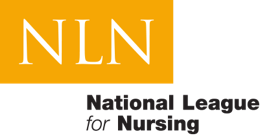Are you considering applying to nursing school?
How do you choose a nursing program that is right for you?
How do you choose a nursing program that is right for you?
Below are some considerations as you look at nursing programs.
Questions to ask:
Questions to ask:
- Admission requirements: What admission standards does the program have?
- GPA
- Math and/or science requirement
- General education coursework
- Admission exam requirement
- Residency-is there preference for in-county or in-state students?
- Full-time versus part-time: Some programs have a part –time option if this would facilitate your personal responsibilities.
- Degree: What degree is awarded upon completion, associate, diploma or bachelors?
- Graduation rates: How many of the students that are admitted graduate? How long does it take to complete the program? What happens if you do not pass a clinical course? How long before you can retake the course? How many times can you retake a course?
- NCLEX pass rates: How well the students who graduate from any program do on the state board licensing exam (NCLEX®). This is extremely important as it is necessary to pass the NCLEX® to practice as an RN. See State Board of Nursing pass rates at: https://www.ncsbn.org/index.htm
- Employment: Do students obtain employment in a timely manner upon completion and licensure?
- Location: Where is the nursing program located, particularly as it relates to clinical site location? A significant portion of the nursing education usually occurs off-site at clinical facilities. Many nursing programs have more than one clinical site, and students are responsible for their travel arrangements to and from the clinical locations.
- Cost: When considering the cost of nursing school, the tuition is the first thing to consider. However, there are often other costs associated with nursing school. Fees, uniforms, books, maintenance of health records, background checks, travel to clinical locations, and equipment such as stethoscopes, are also part of the cost of nursing school. Most nursing schools can provide an estimate of these costs as well as the cost of tuition. Explore funding options through your community college’s financial aid office.
- State Board of Nursing approval: Is the nursing program approved by the State Board of Nursing?
- Why does it matter? In many states the Board of Nursing determines whether or not a nursing program meets the minimum requirements to graduate nurses. If a program is not approved, those graduates cannot apply for licensure in that state. This is particularly important when considering a nursing program that is primarily online. This information can be found on each state’s board of nursing website.
- Does the program have full approval, initial approval, or provisional approval? If the program is not fully approved, you may want to consider another school. You can find this information by going to the State Board of Nursing in the state where the school is located. Here’s the link to find the State Board of Nursing in the state you plan to attend nursing school: National Council of State Boards of Nursing https://www.ncsbn.org/index.htm
- Nursing program accreditation: Is the nursing program accredited by a nursing education accreditor?
- Why is nursing program accreditation important? Accreditation assures that high educational standards are in place, monitored and met; provides for access to federal grants and funding; and facilitates academic progression. In addition, increasingly employers are only willing to hire graduates of accredited nursing programs.
- What nursing organizations accredit nursing programs? There are three organizations that specifically accredit nursing programs: Accreditation Commission for Nursing Education (ACEN); Commission on Collegiate Nursing Education (CCNE); and the Commission for Nursing Education Accreditation (NLN CNEA).
- Funding: What scholarships are available?
- Does the school of nursing or the college/university have a financial aid office? Find out what resources, scholarships and loans are available through the college/university financial aid office.
- College foundation often have scholarship opportunities specifically for nursing students.
- Resources to find nursing education scholarship funds:
- Discover Nursing https://www.discovernursing.com/scholarships#no-filters
- Organization for Associate Degree Nursing https://www.oadn.org/about-us/oadn-foundation
- Foundation of the National Student Nurses’ Association http://www.forevernursing.org/
- American Association of Colleges of Nursing Financial Aid Directory:
http://www.aacn.nche.edu/students/financial-aid
- Academic progression
- Many nursing students continue their education after their initial entry into practice nursing degree. Facilitating seamless progression is supported by a multitude of national nursing organizations. https://www.oadn.org/about-us/position-statement
- https://www.oadn.org/news/academic-news/item/4000-taking-next-step-nursing-education
- Joint brochure with AACN https://www.oadn.org/leading-initiatives/apin-news/item/4000-taking-next-step-nursing-education
- AACN Guide to Graduate Nursing Programs: http://www.aacn.nche.edu/publications/brochures/GradStudentsBrochure.pdf
- Have you talked to your current program about continuing?
- What coursework will transfer?
- You will need to have copies of the syllabi of the courses that you have completed so the transfer program can evaluate the course.
- You will also need to submit an official transcript to the transfer school.
- Some transfer programs require a letter of recommendation from your current school
- Each program evaluates students individually; some programs transfer more courses than others.
- Consider what nursing program in the area accepts transfer students
- Determine what credits transfer
- Is loan forgiveness an option?
- The Department of Education is the resource for loan forgiveness
Prepared collaboratively by:
ABOUTservices |
|






